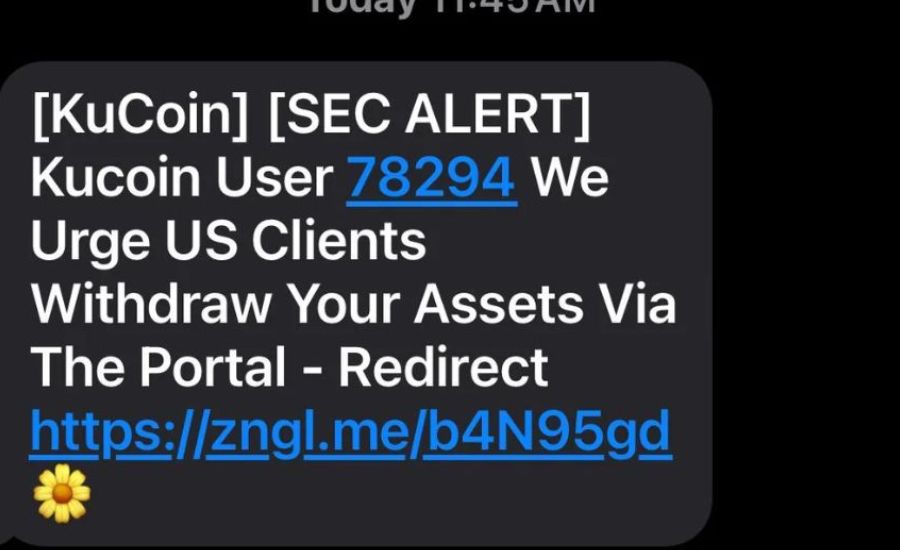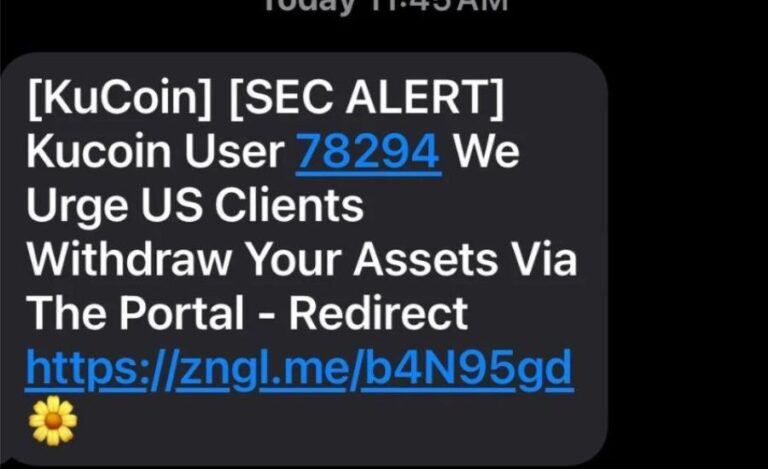Https://Zngl.Me/69hjccb, Impressions, Websites, Considered & More
Introduction
When you come across a hyperlink together with https://zngl.Me/69hjccb, it could to start with appear safe and trustworthy. However, it is vital to keep in mind that now not the whole lot online is because it appears. Even links that appearance harmless at the beginning can lead to ability risks or problems, making it crucial to remain careful while clicking on unusual URLs.
Initial Impressions and User Feedback

When users first encounter a link like https://zngl.me/69hjccb, they may be tempted to click, thinking it’s harmless. However, many users have shared concerns about this link, signaling that caution is needed. Red flags, such as suspicious domain names and poor website construction, indicate potential risks. These signs should prompt users to assess the legitimacy of the site before proceeding.
What Are Scam Websites?
Defining Scam Websites
Scam websites are fraudulent platforms created to deceive users. Their goal is often to trick visitors into sharing personal information or financial details, promising services, products, or deals that never materialize.
Common Features of Scam Websites
Scam websites, such as https://zngl.me/69hjccb, tend to exhibit a few recurring characteristics that make them identifiable:
Deceptive Domain Names: Many scam sites use shortened or misleading domain names to obscure their true nature, like the example above.
Low-Quality Web Design: Scam sites often have poorly constructed pages filled with generic images, broken links, or poor grammar. This loss of professionalism is a major red flag.
Unrealistic Offers: If a website promises too-accurate-to-be-actual deals—which include excessive returns for minimum effort or pricey objects without cost—there’s a sturdy chance it’s a rip-off.
Why Is https://zngl.Me/69hjccb Considered a Scam?
Several factors increase concerns about the legitimacy of https://zngl.Me/69hjccb:
Lack of Transparent Ownership and Contact Information: A legitimate website online will offer clean contact records and commercial enterprise info. The absence of those is a reason for alarm.
No Privacy Policy or Terms of Service: Authentic websites are devoted to transparency, and a scarcity of those key documents shows fraudulent reason.
Negative User Testimonials: Reports of unauthorized fees and identification robbery from customers who engaged with this hyperlink further highlight its doubtful nature.
How to Identify Scam Websites Like https://zngl.Me/69hjccb?
Here are steps to verify if a internet site is valid:
Examine the URL: Look for misspellings, unusual characters, or abnormal endings.
Research User Feedback: A quick search for evaluations can monitor poor stories from different users.
Check for HTTPS: Legitimate websites use HTTPS for steady transactions. If a website doesn’t, be cautious.
Use Scam-Detection Tools: Websites like ScamAdviser and Who.Is can assist affirm a internet site’s authenticity.
Warning Signs to Watch for
Pushy Sales Tactics: Scam sites regularly strain users with phrases like “Limited Time Offer” or “Act Now!” These processes are designed to rush you into making selections without questioning.
Unverifiable Claims: If the internet site promises overly bold effects or gives that appear too properly to be proper, continue with warning.
The Risks of Engaging with Scam Websites
Interacting with scam web sites can lead to several risky outcomes:
Financial Loss: Scam websites often ask for fee in advance, promising goods or offerings, however fail to supply something in return.
Identity Theft: Fraudulent websites may additionally collect private data, leaving customers at risk of identification robbery.
Malware and Phishing: Clicking on suspicious links could result in malware installation, compromising your tool and records.
How to Protect Yourself from Scam Websites
Here are some guidelines to guard your on-line interest:
Verify Website Authenticity: Always double-test the legitimacy of a internet site earlier than entering private records or making bills.
Consult Reviews: Search online for opinions to make sure the website has a straightforward recognition.
Use Security Tools: Antivirus software application and VPNs offer an extra layer of security against malicious sites.
What to Do If You’ve Been Scammed
If you’ve fallen victim to a rip-off like https://zngl.Me/69hjccb:
Contact Your Bank or Credit Card Provider: They can help block similarly unauthorized bills and can help in recuperating misplaced price range.
Report the Scam: Report the fraudulent internet site to government, along with IC3.Gov or FTC.Gov, to prevent others from falling victim.
The Importance of Scam Awareness
Education plays a critical role in stopping scams. By information how fraudulent websites perform, users are higher equipped to avoid them. Share your experience with others to elevate attention, and inspire vigilance in your community.
Real Stories from Victims
Many individuals have shared their unlucky encounters with websites like https://zngl.Me/69hjccb, with a few reporting big monetary losses and compromised private statistics. Recognizing these caution symptoms early can help others avoid falling into the identical trap.
The Role of Search Engines and Social Media
Search engines and social media can accidentally sell rip-off web sites through displaying advertisements or seek results that hyperlink to fraudulent sites. While those systems take steps to clear out scams, customers should remain vigilant and report suspicious hyperlinks.
How Legitimate Websites Differ from Scam Sites
Authentic web sites are obvious and sincere, supplying clear contact details, customer service get right of entry to, and steady price options. Trustworthy web sites will by no means strain you into making short decisions or promise unrealistic results.
How to Report a Scam Website
Reporting rip-off web sites like https://zngl.Me/69hjccb enables protect others from falling sufferer. You can report these sites to patron safety companies or systems like Google Safe Browsing to save you in addition damage.
How You Can Help Others Avoid Scams
Share your story with others, whether on social media or community forums. Educating those around you about commonplace rip-off approaches can save them from capability damage. Join online communities focused on scam prevention to similarly promote focus.
Facts:
1. Initial Impressions and User Feedback
- The link (https://zngl.me/69hjccb) may seem harmless at first, but it’s important to exercise caution. Many users have expressed concerns about this link, signaling potential risks associated with it.
- Warning signs include suspicious domain names and poorly constructed websites.
2. What Are Scam Websites?
- Definition: Scam websites are fraudulent platforms designed to deceive users into providing personal or financial information. They often promise products, services, or deals that never materialize.
- Common Characteristics:
- Misleading Domain Names: Scam sites often use shortened or disguised URLs, making it hard to identify their true nature.
- Poor Design: Many scam websites are poorly constructed, with low-quality images, broken links, and errors in grammar or spelling.
- Unrealistic Offers: If the website promises deals that sound too good to be true (e.g., high returns with little effort or free luxury items), it is likely a scam.
3. Why Is https://zngl.me/69hjccb Considered a Scam?
- Red Flags: The following reasons contribute to the suspicion surrounding https://zngl.me/69hjccb:
- Lack of Contact Information: Legitimate websites provide clear contact details. The absence of such information is a red flag.
- No Privacy Policy or Terms of Service: Authentic sites maintain transparency with these critical documents, while scams often omit them.
- Negative User Testimonials: Reports of financial losses, unauthorized charges, and identity theft by users interacting with this link raise significant concerns.
4. How to Identify Scam Websites
- Examine the URL: Look for unusual or incorrect spellings, unfamiliar characters, or strange endings in the domain name.
- Check Reviews: Searching for user reviews can help identify complaints or poor experiences with the website.
- Look for HTTPS: Legitimate websites use HTTPS encryption to secure transactions. If the site doesn’t use it, be cautious.
- Use Scam-Detection Tools: Resources like ScamAdviser and Who.is provide website analysis and help users verify site authenticity.
5. Warning Signs to Watch For
- Pushy Sales Tactics: If a website uses aggressive language like “Limited Time Offer” or “Act Now!It can be attempting to pressure you into making a choice.
- Unverifiable Claims: Be wary of websites promising unrealistic returns or offers.
6. The Risks of Engaging with Scam Websites
- Financial Loss: Scam websites often ask for upfront payments, providing nothing in return.
- Identity Theft: Fraudulent sites may collect personal data, putting users at risk for identity theft.
- Malware and Phishing: Clicking on suspicious links can result in malware infections, potentially compromising your personal data.
7. How to Protect Yourself from Scam Websites

- Verify Website Authenticity: Always verify the legitimacy of a website before making purchases or sharing personal information.
- Consult Reviews: Look up online reviews to see how trustworthy the website is.
- Use Security Tools: Protect your device by using antivirus software and a VPN to avoid scams and data breaches.
8. What to Do If You’ve Been Scammed
- Contact Your Bank or Credit Card Provider: If you’ve been scammed, immediately reach out to your financial institution to block unauthorized payments and potentially recover lost funds.
- Report the Scam: Report the fraudulent website to authorities such as the FTC (Federal Trade Commission) or IC3 (Internet Crime Complaint Center).
9. The Importance of Scam Awareness
- Education: By learning how scams operate, users can better protect themselves from falling victim. Sharing your experiences helps to raise awareness and prevent others from being scammed.
- Real Stories: Many individuals have shared stories of financial loss and identity theft as a result of scam websites, highlighting the importance of recognizing warning signs early.
10. Role of Search Engines and Social Media
- Scams in Search Results: Search engines and social media platforms can inadvertently promote scam websites through paid ads or search results.
- User Vigilance: While platforms work to filter out scams, users should remain vigilant and report suspicious links to help protect others.
11. How Legitimate Websites Differ from Scam Sites
- Transparency: Legitimate websites will always offer clear contact details, a customer service function, and secure payment methods.
- Trustworthiness: Authentic websites provide verifiable claims and maintain professionalism, ensuring that users feel secure when interacting with them.
12. How to Report a Scam Website
- Reporting: Reporting scam websites helps prevent further harm. Websites can be reported to consumer protection agencies or through Google Safe Browsing to stop them from deceiving more users.
13. How You Can Help Others Avoid Scams
- Sharing Your Story: Sharing your experiences with scams on social media or forums can help others avoid the same pitfalls.
- Promote Awareness: Engage in online communities focused on scam prevention and spread awareness to keep others safe from fraud.
These facts help users understand the risks and steps to take when encountering suspicious websites, such as https://zngl.me/69hjccb, and promote a safer online environment.
Summary:
The link https://zngl.me/69hjccb may appear harmless at first glance, but it has raised concerns due to potential risks associated with scam websites. Scam websites are fraudulent platforms designed to deceive users into providing personal or financial information by promising unrealistic deals or services. They often exhibit features like misleading domain names, poor web design, and unverified claims.
The article explains how to identify scam websites, emphasizing the importance of checking for suspicious URLs, user reviews, HTTPS encryption, and using scam-detection tools. Red flags for the https://zngl.me/69hjccb link include the lack of contact information, absence of privacy policies, and negative user testimonials. Engaging with scam sites can result in financial loss, identity theft, or malware infections.
To protect yourself, it is essential to verify the authenticity of websites, consult reviews, and use security tools like antivirus software and VPNs. If you’ve been scammed, contact your bank and report the scam to relevant authorities.
The article highlights the importance of scam awareness and user vigilance. By sharing experiences and reporting fraudulent websites, users can help protect others. It also discusses how legitimate websites differ from scams, particularly in their transparency, secure transactions, and professional appearance.
Ultimately, understanding these risks and taking precautions can help users navigate the internet more safely and avoid falling victim to scams.
FAQs:
What is https://zngl.me/69hjccb?
- It is a suspicious link that raises concerns about being a potential scam. Users have expressed doubts about its legitimacy due to factors like poor website construction, misleading domain names, and negative feedback.
What are scam websites?
- Scam websites are fraudulent platforms created to deceive users into providing personal or financial information. They often promise products, services, or deals that never materialize.
How can I identify a scam website?
- Look for suspicious URLs, such as misspellings or strange characters.
- Check for user reviews and feedback.
- Ensure the website uses HTTPS for secure transactions.
- Use scam-detection tools like ScamAdviser and Who.Is.
What are common characteristics of scam websites?
- Deceptive domain names (often shortened or disguised URLs).
- Poor website design with low-quality images, broken links, or spelling errors.
- Unrealistic offers, such as promises of high returns for little effort or free items.
Why is https://zngl.me/69hjccb considered a scam?
- Red flags include a lack of contact information, missing privacy policies and terms of service, and negative user testimonials reporting financial loss and identity theft.
What are the risks of engaging with scam websites?
- Financial loss from advance payments for goods or services that are never delivered.
- Identity theft from personal information being collected.
- Malware or phishing attacks that compromise your device and data.
How can I protect myself from scam websites?
- Verify website authenticity by checking the URL, reading reviews, and using scam-detection tools.
- Look for HTTPS encryption for secure transactions.
- For extra security, use a VPN and antivirus software.
What should I do if I’ve been scammed?
- Contact your bank or credit card provider to block unauthorized payments and recover lost funds.
- Inform authorities such as the FTC or the Internet Crime Complaint Center (IC3) about the scam.
How can I help others avoid scams?
- Share your experiences with scams on social media or community forums to warn others.
- Join online communities focused on scam prevention to raise awareness and spread information.
How do legitimate websites differ from scam websites?
- Legitimate websites are transparent, offering clear contact details, customer service, secure payment methods, and professional design. They also avoid unrealistic promises and pressure tactics.
How can I report a scam website?
- You can report scam websites to consumer protection agencies, such as the FTC or IC3, or through platforms like Google Safe Browsing.
What are the warning signs to watch for when visiting a suspicious website?
- Aggressive sales tactics (e.g., “Limited Time Offer”).
- Unverifiable or unrealistic claims.
- Lack of clear contact information or transparency.
Why is scam awareness important?
- Understanding how scams work helps protect users from falling victim to fraud. Educating others and staying vigilant can prevent scams from spreading.






![[Img]Https://Lookpic.Com/Cdn/I2/S/05282024182719-002.Jpg[/Img], Breeze & More 11 [Img]Https://Lookpic.Com/Cdn/I2/S/05282024182719-002.Jpg[/Img], Breeze & More](https://idealrular.com/wp-content/uploads/2024/11/Maury_Ange-Faith-Martinez-Daquan-And-Jorge-61-768x469.jpg)